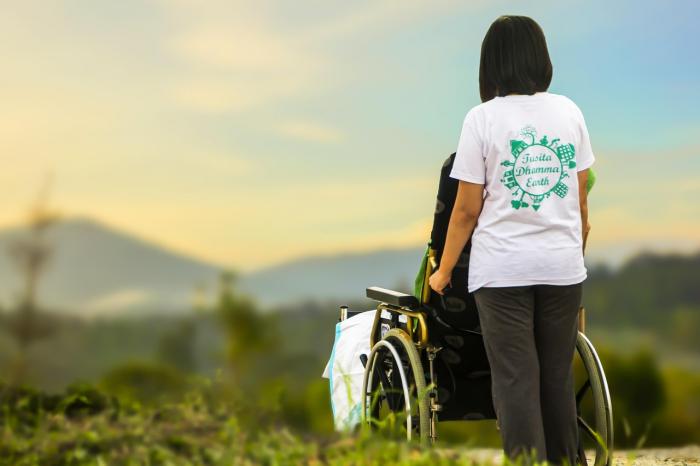In recent years, there has been a rise in Taiwan’s aging population, which has led to the steady demand for caregivers, nursing aides, and other healthcare workers. They are usually assigned to work in hospitals, clinics, assisted care facilities, and even private homes.
Now you might be thinking, what are the differences between nursing aides and caregivers? Furthermore, what is the role of a caretaker? In this article, we will discuss the similarities and differences among these healthcare workers, and how they are usually perceived in the Taiwanese context.

Differences Between Nursing Aide, Caregiver, and Caretaker
To address the rising demand for healthcare services, Taiwan has been hiring overseas nursing aides, caregivers, and caretakers, including overseas Filipino workers (OFWs). All of these workers play an important role in caring for the elderly and persons with special needs, though there are minor differences among them, too.
Nursing Aide
As the term implies, nursing aides or nursing assistants provide patients with basic care. They usually work in hospitals or clinics, under the supervision of licensed nurses. Most nursing aides are nursing graduates who have undergone formal training.
Typically, the responsibilities of a nursing aide includes:
- Assisting patients with bathing, dressing, feeding, and other daily activities;
- Providing patients with mobility assistance (e.g. walking, moving);
- Monitoring patients’ vital signs (e.g. blood pressure, pulse, temperature);
- Preparing and administering medications to patients; and
- Answering patients’ calls to address their needs and concerns.
Caregiver
Similar to nursing aides, caregivers also provide basic care, assisting patients with bathing, dressing, feeding, and other daily activities. Most of them have undergone formal training, and may also be tasked to monitor patients’ vital signs as well as prepare and administer medications.
While their duties may be similar, the main difference between nursing aides and caregivers are their places of work. Nursing aides are typically assigned in hospitals and clinics, whereas caregivers usually work in nursing homes or even private homes.
Notably, caregivers who are hired to work in private homes usually act as “surrogate” family members, providing care for patients whose own families cannot be present full-time. In these situations, their daily activities may include preparing the patient’s meals, keeping the patient’s room clean, and providing companionship.
Caretaker
And now, let’s take a look at caretakers. The Merriam-Webster Dictionary (2025) provides two definitions for “caretaker:” (a) one that gives physical or emotional care and support; and (b) one that takes care of the house or land of an owner who may be absent.
In the Philippines, we usually perceive caretakers based on the second definition (i.e. cares for a house or land). However, in Taiwan, caretakers are similar to caregivers; they provide basic care for elderly patients or persons with special needs.
Like caregivers, caretakers assist patients with bathing, dressing, feeding, mobility, and other day-to-day activities. Based on our research, the main difference also lies in their places of work.
Caregivers are usually assigned in nursing homes or assisted care facilities; they may be assigned to care for up to 10 patients everyday. On the other hand, caretakers are usually assigned in private homes, providing care for just one patient. In terms of salary, caregivers generally earn more than caretakers.

Nursing aides, caregivers, and caretakers… There may be slight differences in their roles and workplaces, but all of them provide essential care to the elderly and persons with special needs. All of them play an important role in the healthcare industry of Taiwan.
The Taiwan government values the significant roles of healthcare workers in the country. It continues to uphold their rights, making sure that they are not compelled to perform tasks that are not in their job description. Check out this news article about what the Taipei City Labor Bureau had to say about the roles of caregivers.

